Julius Caesar: The Immortal Figure of the Roman Empire
Julius Caesar is one of the most powerful personalities of ancient history and a point of reference throughout the years.
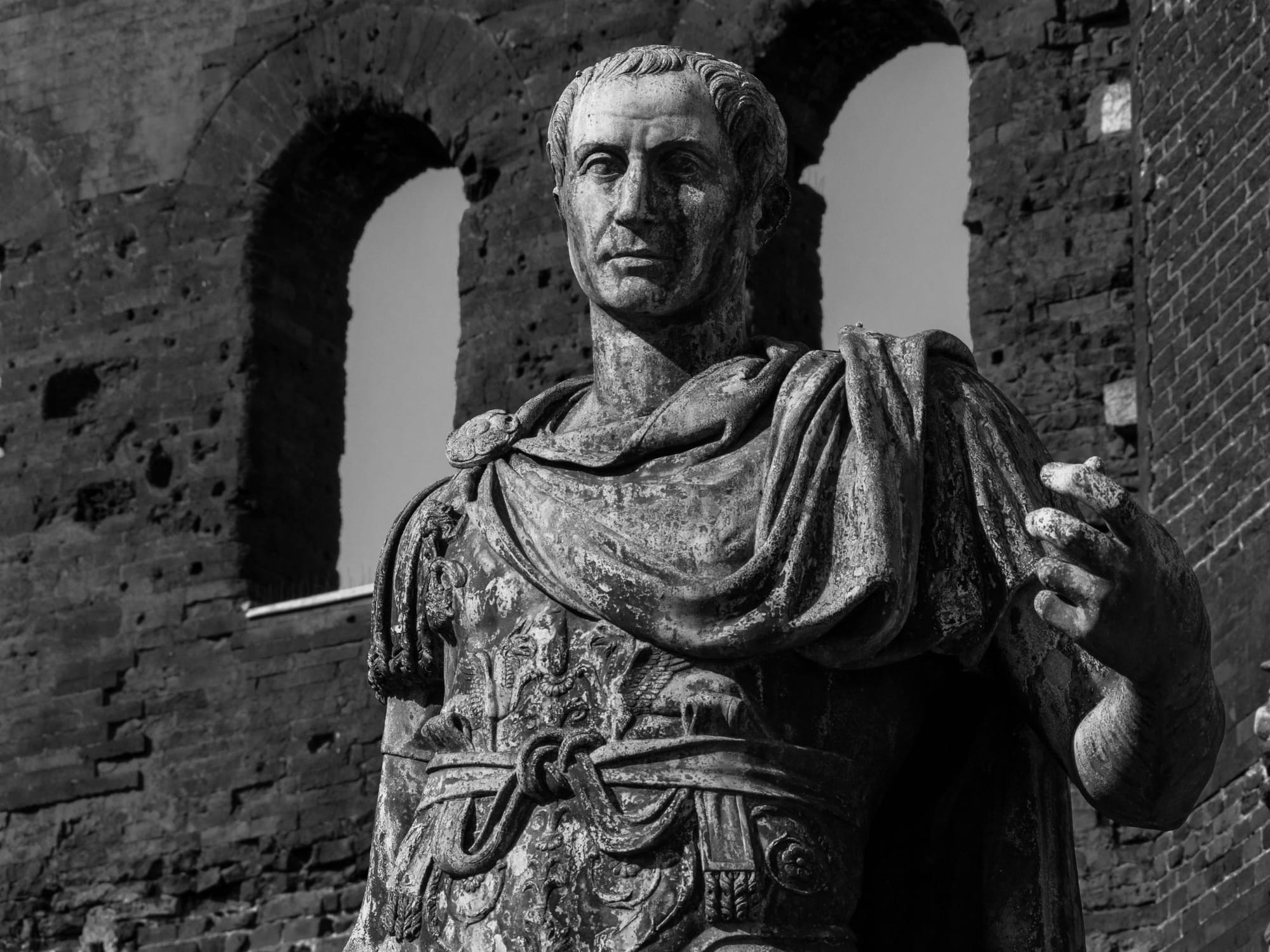
Julius Caesar is a historical figure who consistently captivates, much like the conclusion of the Roman Republican governance. The primary resource for understanding Caesar’s life are his own accounts: his detailed commentaries on his military campaigns in Gaul (France) and during the civil war against his adversaries. These writings are considered some of the most significant contributions to Latin historical literature.
As a member of the Roman nobility, whose primary ambition was to achieve a distinguished political and/or military career, the most crucial aspect of Caesar’s education was his political apprenticeship. This began around 91 and 90 BC when he was around nine or ten years old. Coincidentally, this period aligned with the time his father, uncle, and their two cousins were actively pursuing and holding significant political offices.
It is highly probable that Caesar gained his understanding of Roman politics and political dynamics by observing them. Roman senators and magistrates were never alone; they were always accompanied by a retinue wherever they went. (Richard A. Bollows, Julius Caesar, The Colossus of Rome)
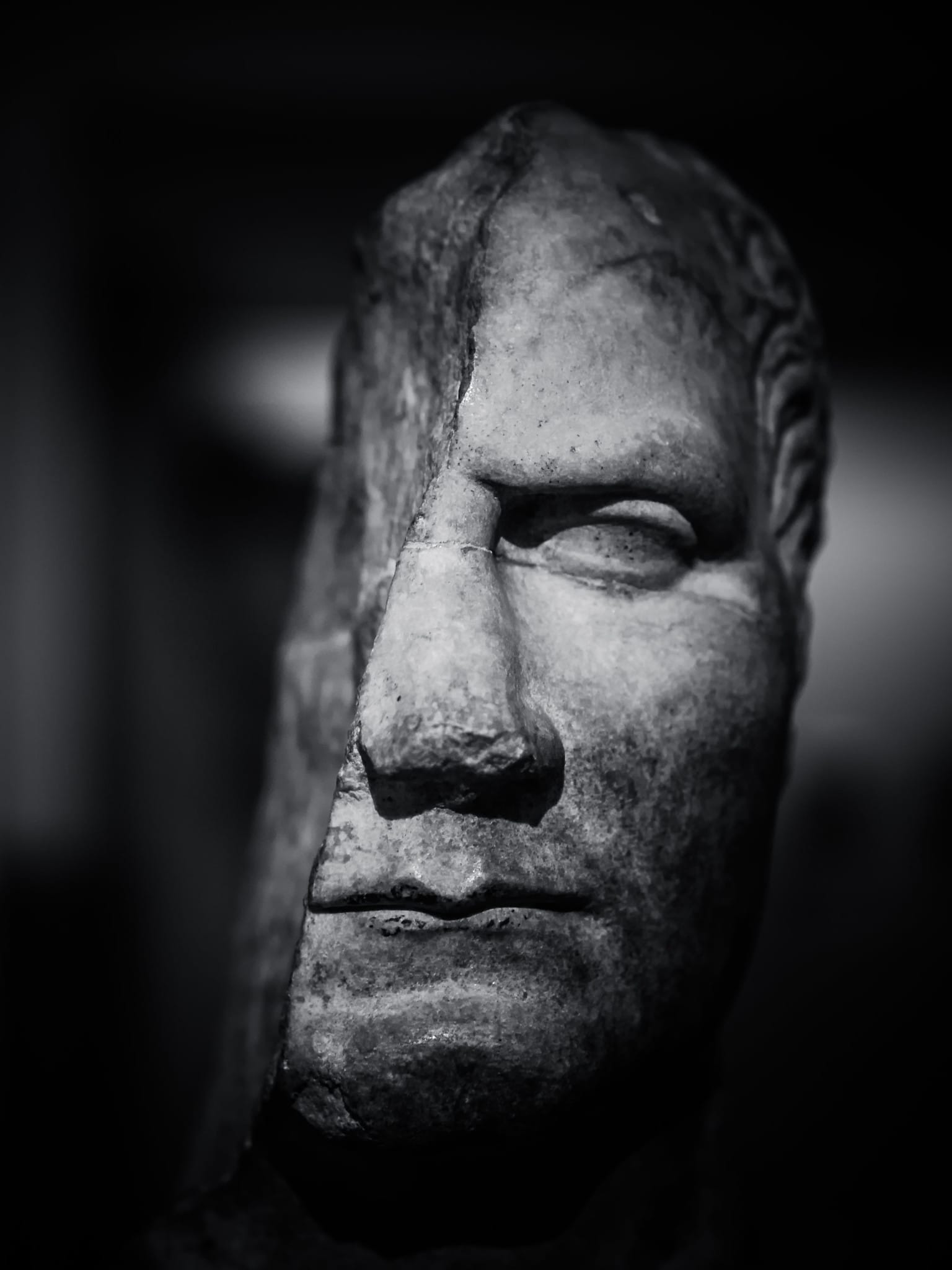
Who was Julius Caesar?
Gaius Julius Caesar (12 July 100 BC – 15 March 44 BC) was a prominent Roman general and political leader. As a part of the First Triumvirate, he commanded Roman forces in the Gallic Wars, then overcame his political adversary Pompey in a civil conflict. He served as dictator from 49 BC until his assassination in 44 BC. His actions were critical in the transition from the Roman Republic to the establishment of the Roman Empire.
Julius Caesar was born into the patrician Julia clan on 12 July 100 BC. His family claimed its roots stretched back to the seventh century BC, originating from Alba Longa after the city was conquered and destroyed by Tullus Hostilius, the third king of Rome. They also boasted lineage from Julus, son of Aeneas, the founder of Alba Longa, and consequently from Venus, lending the family a divine status. By the first century, this noble descent from Venus was firmly recognized in public perception, although the full details of their genealogy were not yet solidified.
There is no factual basis for the myth that Caesar was delivered by Caesarean section, a procedure typically fatal for the mother at the time; his mother lived many years post his birth, with no recorded complications during his delivery.
Historically, the Julii Caesares didn’t wield significant political influence during the middle republic. The first to use the cognomen "Caesar" was a praetor during the Second Punic War in 208 BC. The family saw its first consul in 157 BC, with a resurgence in political fortunes by the early first century, achieving two consulships in 91 and 90 BC.
The family home where Caesar was raised, as described by Suetonius, was "a modest house in the Subura quarter". Unlike the grand townhouses favored by some of the richest and most flamboyant nobility, Caesar's family home was not palatial. However, considering Caesar's penchant for lavishness in his youth, it can be reasonably assumed that the home he was comfortable living in throughout his twenties and thirties was adequately spacious.
The Subura, located between the Forum and the Quirinal and Viminal Hills, was a densely populated area of Rome, housing many of the city's less affluent residents in multi-story apartment buildings (insulae). Yet, in ancient cities, the separation between wealthy and impoverished neighborhoods was not as distinct as it is in modern cities. It was common for luxurious mansions to be interspersed among blocks of modest tenements, and Rome was no different. Hence, it was not particularly unusual for Caesar's family to dwell in a part of the city known for its 'popular' or common character.
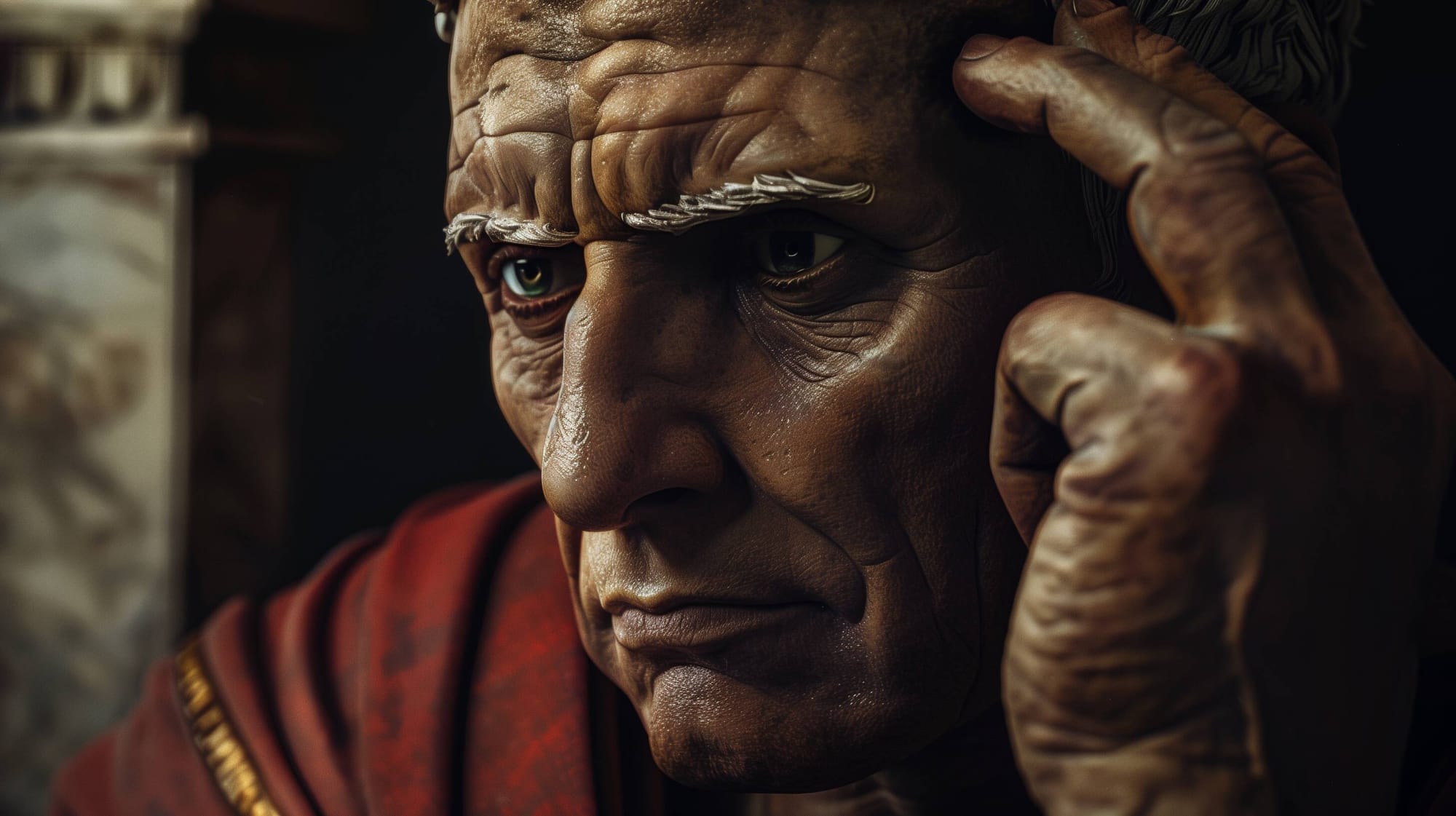
The primary focus in a child’s upbringing is undoubtedly education; while we lack detailed specifics about Caesar’s early learning, the general framework is evident. During the initial seven or eight years of life, a Roman boy was nurtured by his mother. Caesar’s mother, Aurelia, noted for her intelligence and moral fiber, did an exemplary job raising him not just during his infancy but also as he progressed through adolescence and into young adulthood. After the death of Caesar’s father around 85 or 84 BC, Aurelia, who never remarried, remained a central figure in her son's life, living with him until her passing in 54 BC.
Upon transitioning from maternal care, an upper-class Roman boy like Caesar would embark on a dual-track education. The formal aspect involved learning to read and write in both Latin and Greek, studying classic Roman poets such as Ennius, Naevius, and Terence, as well as Greek luminaries like Homer, selected lyric poets, and Athenian dramatists. Additionally, he would receive an introduction to Greek philosophy, but the emphasis was predominantly on mastering the art of rhetoric.
Suetonius describes Julius Caesar as a tall man with a full face and fair complexion, well-proportioned limbs, and possibly left-handed. He had sparse hair which he styled meticulously, often scratching his head with a single finger. His manners were refined, contributing to perceptions of him as somewhat sophisticated and generally vain. Despite his commanding presence, Caesar might have felt insecure about his appearance or suffered from health issues; he was rumored to be epileptic and may have had skin problems from prolonged sun exposure during battles.
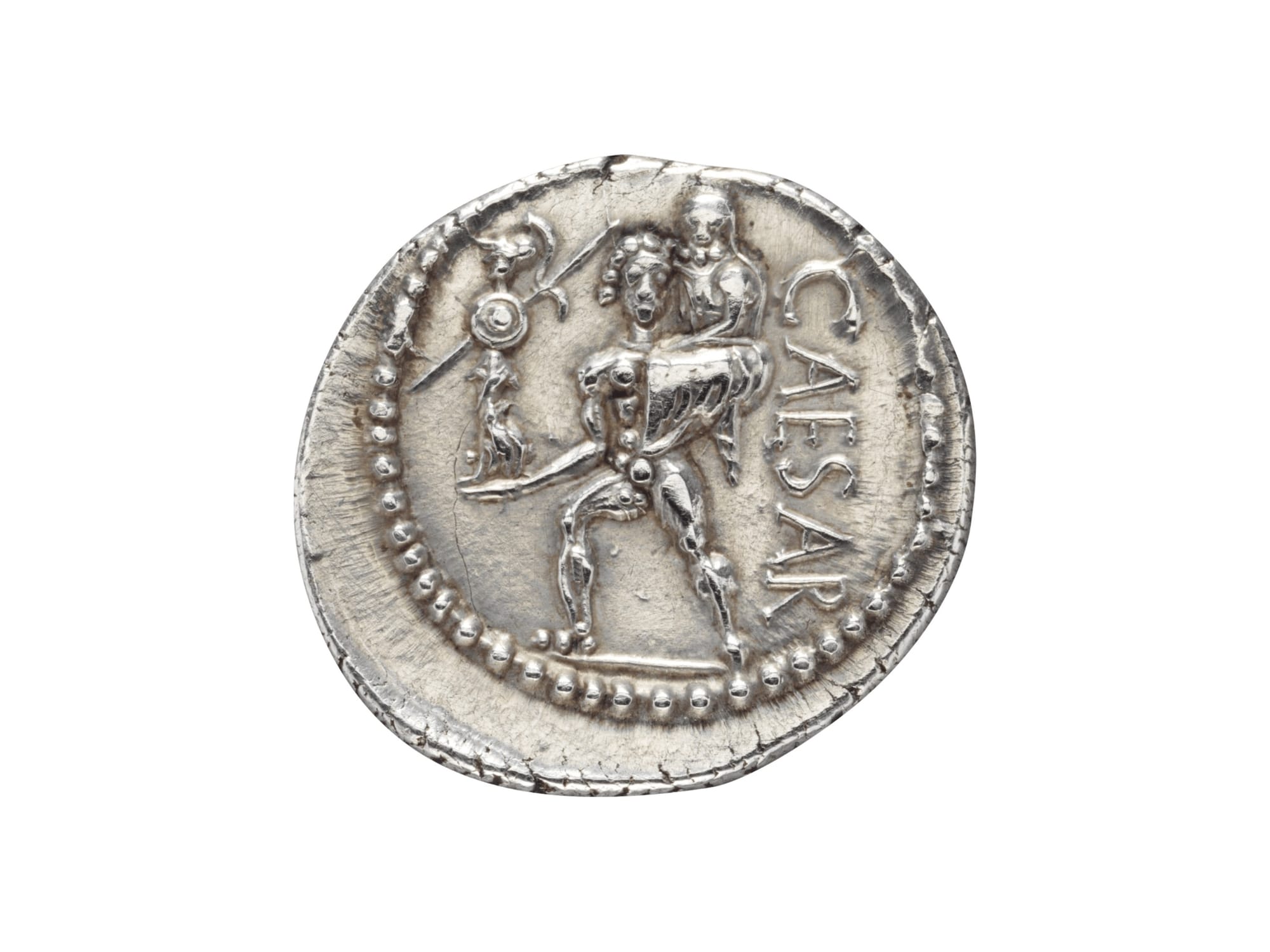
This is hinted at by some of his coins, which depict him as a thin man with a wrinkled neck.
Silver denarius of Julius Caesar by Unknown, -40. Courtesy of the Metropolitan Museum.
When he was captured by pirates en route to Rhodes in 75 BC, he had a physician accompany him, suggesting concerns about his health. Unlike many of his contemporaries like Cato and Marcus Antonius, who were known for their heavy drinking, Caesar consumed very little wine, possibly due to a health condition.
Caesar was also highly skilled in both oratory and writing. Cicero praised his style as elegant, clear, grand, and somewhat noble. As an orator, he spoke in a high-pitched voice with passionate gestures that had a graceful quality. While he published much of his work, including speeches and literary pieces, only a fraction, such as his accounts of the Gallic Wars, has survived. (Maria Sousa Galito, Ancient Roman Politics-Julius Ceasar, Working paper, Lisbon School of Economics and Management, 2018)
Did Julius Caesar become Emperor?
Julius Caesar, although widely referred to as "Imperator" by his troops—a term from which the English word "Emperor" originates—was never technically an emperor. In Ancient Rome, the title "Imperator" had a different connotation; it was used to honor generals for their battlefield successes, signifying their status as conquerors. Despite this, Julius Caesar wielded substantial power and influence, effectively serving as an emperor in everything but title.
Caesar's military achievements are the most evident aspect of his strength. Throughout his extensive career, he engaged in numerous conflicts. His conquest of Gaul was particularly significant, as it was the largest territorial expansion for the Republic since Pompey's conquests in the East.
But it wasn't only his victories against foreign adversaries that secured his power. His triumph in the civil war against Pompey gave him control of Rome's mightiest army to date and an unprecedented number of supporters. With the largest army under his command and no rivals left to oppose him, the Senate had little choice.
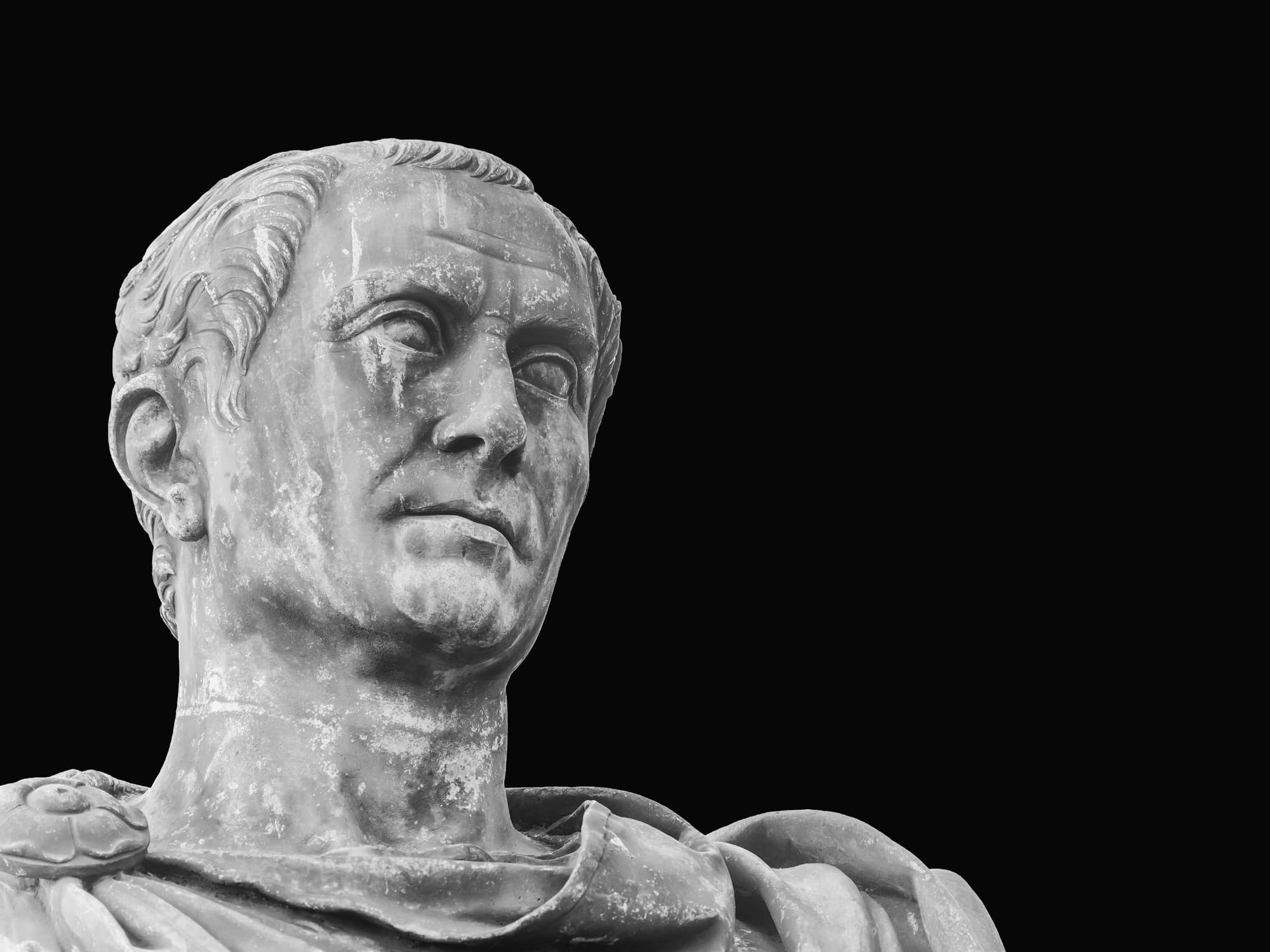
They appointed Julius Caesar, dictator for life.
Gaius Julius Caesar. Credits Crisfotolux from Getty Images by Canva
Julius Caesar was a master of political strategy. His adept maneuvering in the political landscape, which had been a battleground in the Senate for centuries, is evident from his creation of the First Triumvirate. This alliance, formed with Pompey and Crassus, who were among the wealthiest, most powerful, and most astute politicians of their time, was strategically designed to bolster his own political standing.
The arrangement was mutually beneficial, though Caesar arguably reaped the greatest gains from it. After his victory in the civil war, however, securing the support of the common people became his next crucial task. If he could win over the populace, the Senate, already weakened by Caesar's command over a formidable army, would have no choice but to comply with his demands or face the anger of the public.
To achieve this, Caesar undertook reforms of the Constitution to establish a more stable government for the Republic. He also distributed substantial sums of money to the public, funds that were accrued through his victories over Pompey and in other campaigns. Additionally, he granted land to his veterans, ensuring their support. These actions effectively garnered the backing of the populace, solidifying their support for his role as dictator.
Caesar's changes provoked the ire of the elite, especially due to his neglect of the Roman Senate and republican customs. A personality cult formed around him, highlighted by his actions such as issuing coins bearing his likeness, instituting his birthday as a public holiday, and presiding over the Senate from a golden throne. He renamed Quintilis, the month of his birth, to Julius, now known as July. Furthermore, Julius Caesar brought his mistress Cleopatra and their son Caesarion, a potential heir, to Rome, where they stayed as his guests.
"He was unsparing in his outlays of money, and was thought to be purchasing a transient and short-lived fame at a great price, though in reality he was buying things of the highest value at a small price"
Plutarch
How long was Julius Caesar in power?
Not for long. Caesar made the pivotal move of crossing the Rubicon in early 49 BC, effectively initiating a war against the Roman Republic. His forces took control of Rome within the same year. He overcame the Senate's primary army by late summer of 48 BC. Upon returning to Rome in 47 BC, he appointed himself dictator perpetuus, translating to "ruler for life".
However, he had not yet completely vanquished the remaining steadfast senators; he continued his campaigns in North Africa and then Spain during 46 and 45 BC to fully secure his position. After returning to Rome in 44 BC, Caesar's life was cut short when he was assassinated on the ides of March of that year.
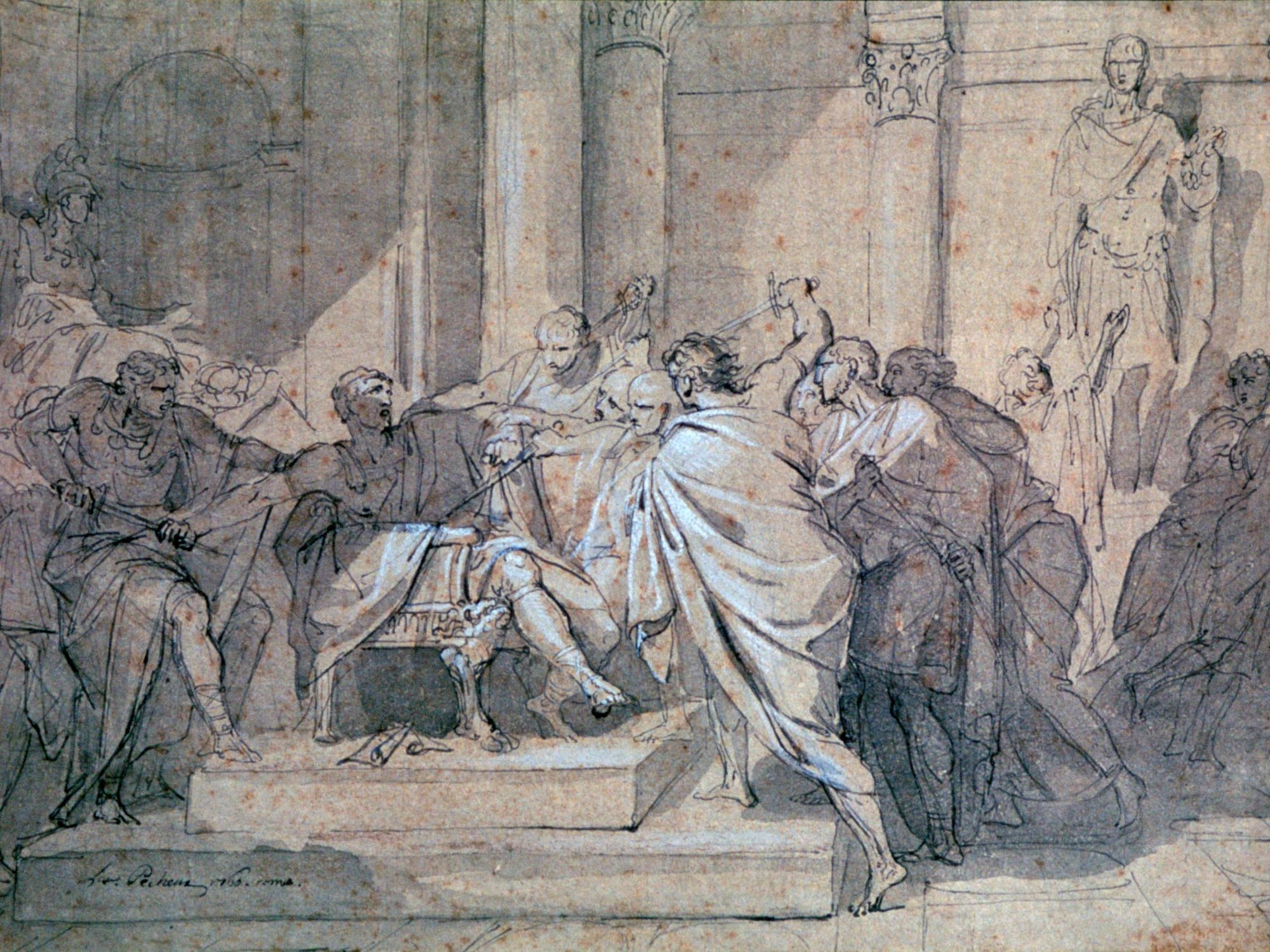
“So the affair began, and those who were not privy to the plot were filled with consternation and horror at what was going on; they dared not fly, nor go to Caesar's help, nay, nor even utter a word.
But those who had prepared themselves for the murder bared each of them his dagger, and Caesar, hemmed in on all sides, whichever way he turned confronting blows of weapons aimed at his face and eyes, driven hither and thither like a wild beast, was entangled in the hands of all; for all had to take part in the sacrifice and taste of the slaughter. Therefore Brutus also gave him one blow in the groin.
And it is said by some writers that although Caesar defended himself against the rest and darted this way and that and cried aloud, when he saw that Brutus had drawn his dagger, he pulled his toga down over his head and sank, either by chance or because pushed there by his murderers, against the pedestal on which the statue of Pompey stood.
And the pedestal was drenched with his blood, so that one might have thought that Pompey himself was presiding over this vengeance upon his enemy, who now lay prostrate at his feet, quivering from a multitude of wounds.
For it is said that he received twenty-three; and many of the conspirators were wounded by one another, as they struggled to plant all those blows in one body.”
Plutarch, The Parallel Lives, The Life of Julius Caesar

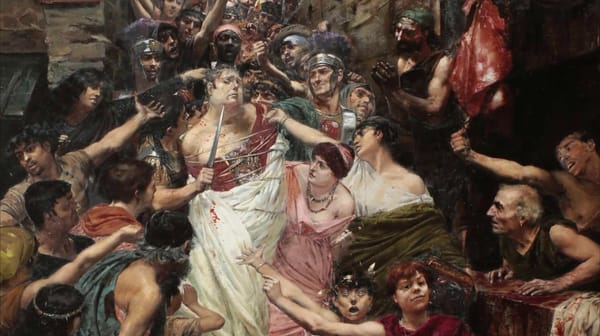
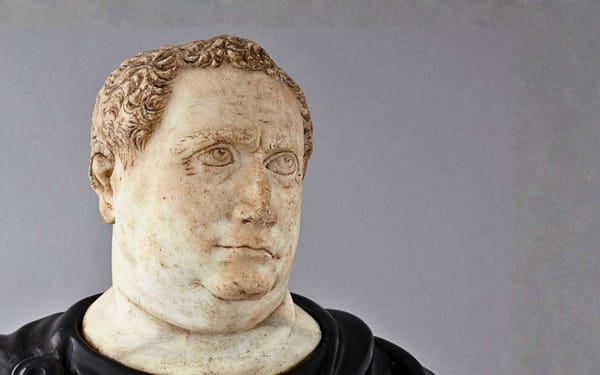
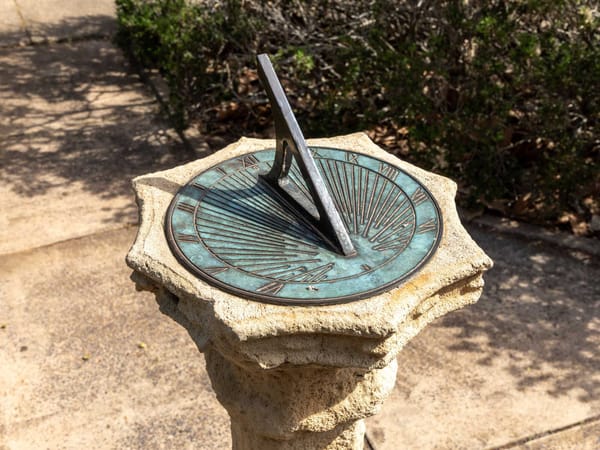
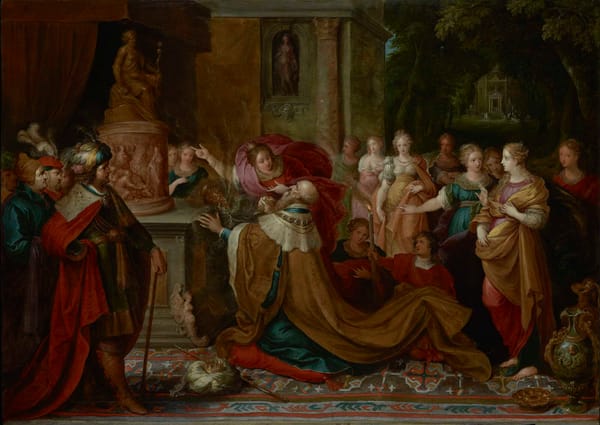
About the Roman Empire Times
See all the latest news for the Roman Empire, ancient Roman historical facts, anecdotes from Roman Times and stories from the Empire at romanempiretimes.com. Contact our newsroom to report an update or send your story, photos and videos. Follow RET on Google News, Flipboard and subscribe here to our daily email.
Follow the Roman Empire Times on social media: